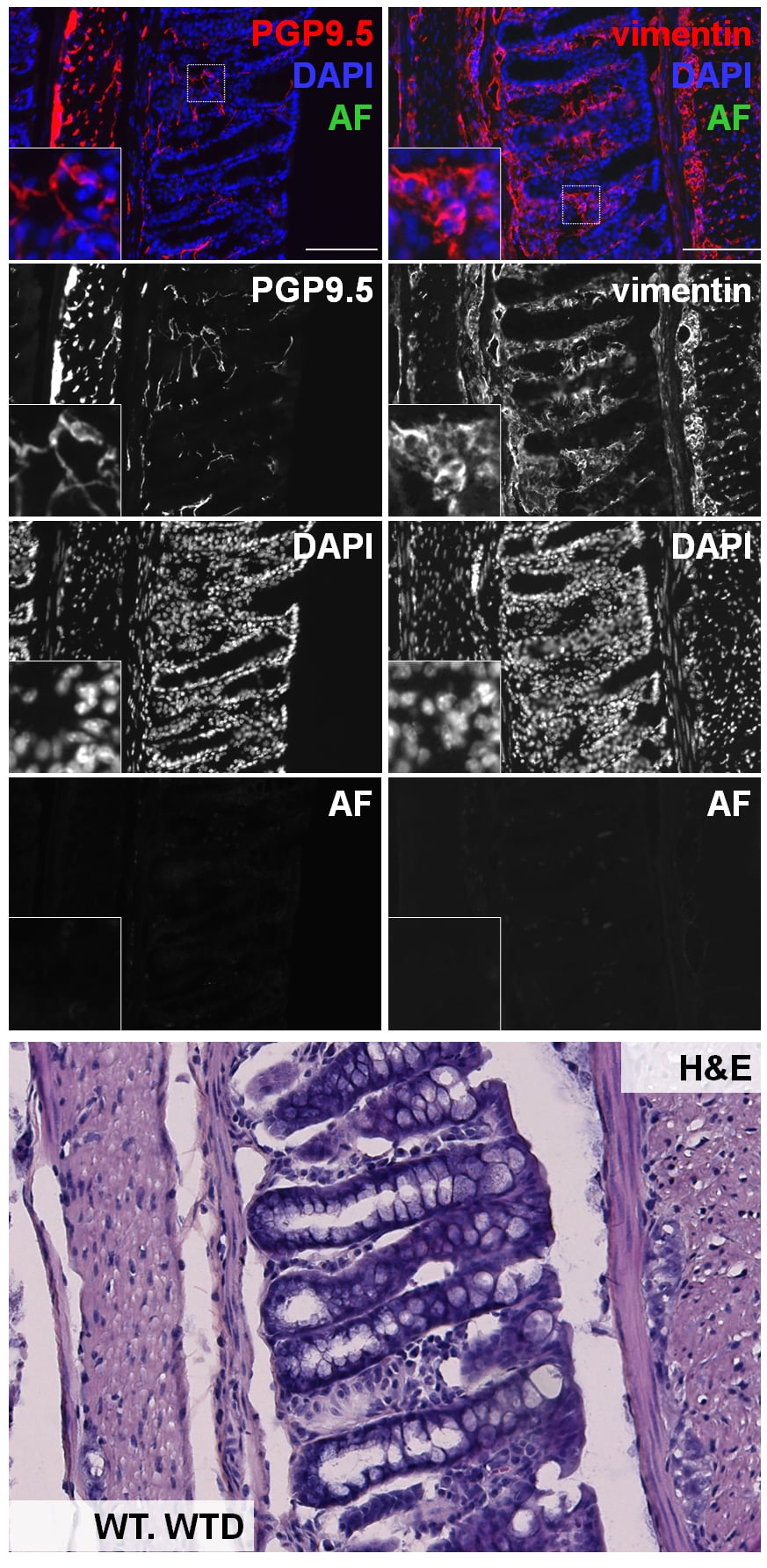People’s diet can strongly influence their health and wellbeing. Certain diet ingredients can even affect the onset and progression of some diseases. Feeding mice with a special diet can therefore be used to analyze the effect of a diet or dietary component on typical disease pathologies. Depending on the genetic background of mice used for the feeding study, the diet can be utilized to induce for example features of the metabolic syndrome such as obesity and insulin resistance or atherosclerosis but also to affect the pathology of Alzheimer’s or Parkinson’s disease transgenic mice.
Wild type or transgenic mice can be fed with the diet of your choice – for instance with a Western-type, high/low fat, or high fructose/sucrose diet. Animals can be analyzed depending on your research question for the following readouts:
In vivo:
- Body weight
- Food consumption (caloric intake or consumed dietary components such as fat)
- In vivo blood sampling
- Gut transit time
- Glucose tolerance
- Activity and motor abilities
- Nesting Behavior
- Cognition
- BBB permeability by Evans Blue test (terminal)
Ex vivo:
- Preparation and analysis of different tissues, including various fat or gastrointestinal tissues
- Inflammation marker levels (cytokines) by MesoScale Discovery
- Serum lipid profile (LDL, HDL, total cholesterol, triglycerides)
- Disease-specific markers (Aβ, tau, p-tau, α-synclein)
- Preparation of Swiss roll of intestines and further histological analyses for
- PGP9.5 to mark enteric neurons
- Vimentine to mark mesenchymal cells including fibroblasts
- Leukocyte infiltration
- B- and T-cell marker (B220/CD45R, CD3)
- Monocytes/Macrophages (F4/80, CD68, CD11b, Iba1)
- Or any marker of your choice

Figure 1: Immunofluorescent and H&E labeling of the colon of a wild type mouse fed with Western-type diet. Intestines were prepared as Swiss roll and labeled with PGP9.5 to visualize enteric neurons and vimentine to mark mesenchymal cells including fibroblast in the colon. Sections were counterstained with DAPI for visualization of cell nuclei. AF: Autofluorescence. Scale bar: 100 µm. H&E staining of the colon proving a structural overview of the tissue.
QPS Neuropharmacology offers custom-tailored study designs for special diet mouse treatments, and we are flexible to accommodate your special interests. We are also happy to advise you and propose study designs. We would be happy to evaluate the efficacy of your compound in a diet-induce mouse model!
